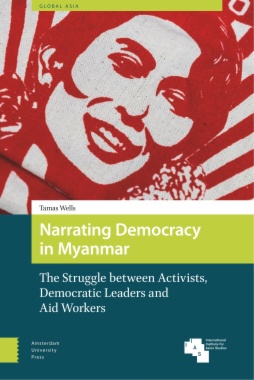This book analyses what Myanmar’s struggle for democracy has signified to Burmese activists and democratic leaders, and to their international allies. In doing so, it explores how understanding contested meanings of democracy helps make sense of the country’s tortuous path since Aung San Suu Kyi’s National League for Democracy won historic elections in 2015. Using Burmese and English language sources, Narrating Democracy in Myanmar reveals how the country’s ongoing struggles for democracy exist not only in opposition to Burmese military elites, but also within networks of local activists and democratic leaders, and international aid workers.
- Cover
- Table of contents
- Abbreviations
- Acknowledgements
- Foreword
- 1. Introduction
- Other struggles for democracy
- Narrating democracy
- Book overview
- 2. Elucidating the meaning of democracy through narrative
- An ‘ideal type’ of democracy?
- Revisiting the ‘essential contestability’ of democracy
- Interpretivism and meanings of democracy
- Using narrative analysis to elucidate meanings of democracy
- Conclusion
- 3. Toward the ‘Ocean of Democracy’?
- The British colonial administration, the Thakin and contests over meanings of democracy in late colonial Burma
- British colonial administration and the ‘Ocean of Democracy’
- Burmese independence leaders and counter-narratives
- Conclusion
- 4. Burma after independence
- From moral to ‘disciplined’ democracy
- Unity, moral democracy and the leadership of the AFPFL
- Military socialism
- The road to ‘disciplined democracy’ (1988-2011) under General Than Shwe
- The opposition movement
- Conclusion
- 5. A liberal narrative
- The challenge of division and personalised politics
- The vision of democratic procedures and liberal values
- The strategy of capacity building
- Conclusions
- 6. A benevolence narrative
- The challenge of moral failure
- The vision of sedana
- The values of democracy: Obligation, unity and majority protection
- The strategy of moral education and the building of discipline
- Conclusion
- 7. An equality narrative
- The challenge of hierarchy
- The vision of equality
- The strategy of cultural reform
- Conclusion
- 8. Exposing the political use of narratives
- Narratives of democracy as instruments of power
- The overt and covert nature of conceptual politics
- Conclusion
- 9. Beyond an ‘ideal type’
- Implications for democracy promotion
- The implications of other struggles for democracy
- Conclusion
- 10. Playing different games
- Myanmar’s future challenges
- Prospects for a benevolent democracy
- The future of democracy promotion and governance reform in Myanmar
- Other struggles for democracy
- Index

